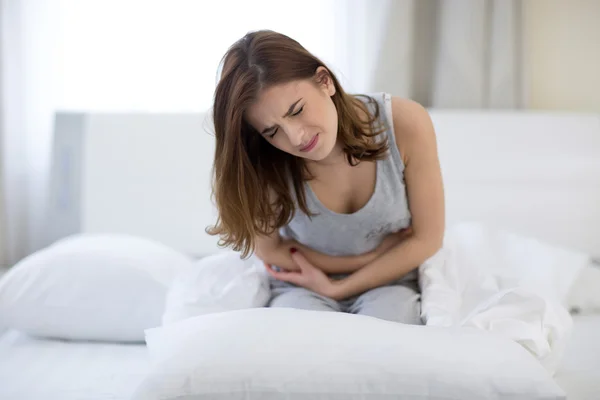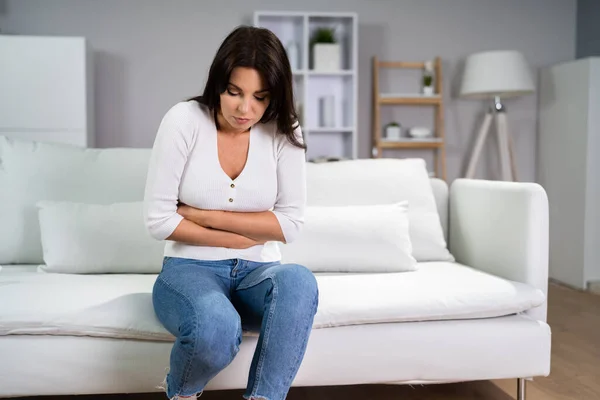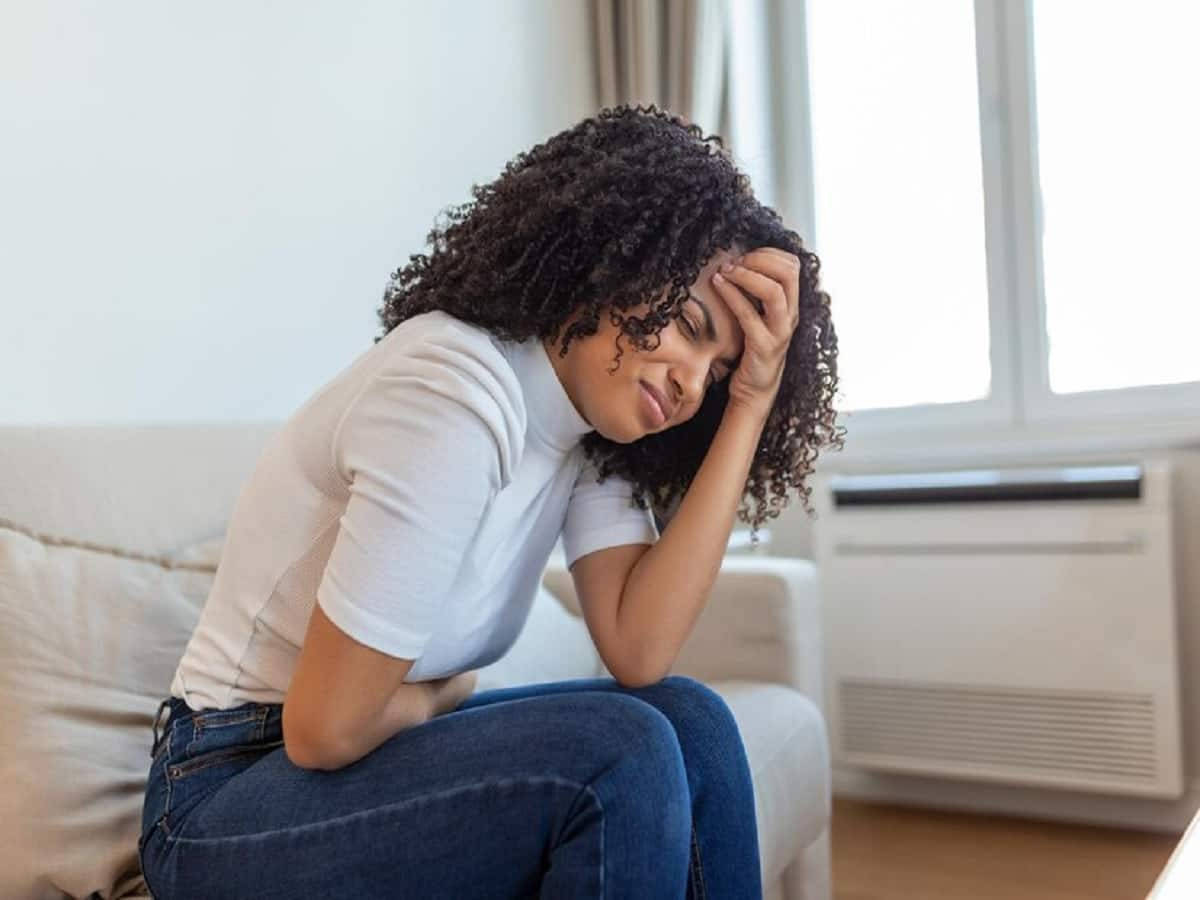Menstruation can be a monthly rollercoaster of emotions and physical discomfort, but period gas pain shouldn’t be the ride’s main attraction. This article explores effective strategies to alleviate gas pain during menstruation, helping you regain comfort and control.

Understanding Period Gas Pain
Period gas pain is a common issue that affects up to 70% of women during their menstrual cycle. Hormonal changes, particularly the rise in progesterone, can slow down your digestive system, leading to increased gas production and bloating.
Prostaglandins, hormone-like substances released during menstruation, can also cause the uterus to contract, which may contribute to gas pain. Additionally, dietary changes and increased sensitivity in the gastrointestinal tract can exacerbate gas and bloating during this time.
Tips to Get Rid of Gas Pain During Your Period
Dietary Adjustments
One of the most effective ways to manage period gas pain is by making some simple dietary changes. Avoid gas-producing foods such as beans, broccoli, and carbonated beverages, as they can worsen symptoms. Instead, focus on eating smaller, more frequent meals to aid digestion.
Gradually increasing your fiber intake can also help prevent constipation, which often exacerbates gas pain. Aim for a balanced diet rich in whole grains, lentils, beans, vegetables (especially leafy greens), fruits, and nuts.
Hydration
Staying hydrated is crucial for overall digestive health and can help reduce bloating. Keep a water bottle handy and aim for at least eight 8-ounce glasses of water per day. You can also try herbal teas, such as peppermint and ginger, which have natural carminative properties that can help relieve gas.
Heat Therapy
Applying heat to the abdomen can relax muscles and alleviate both menstrual and gas pain. Use a heating pad or hot water bottle for 15-20 minutes at a time, or soak in a warm bath as a dual remedy for cramps and gas.
Gentle Exercise
Light exercise, such as yoga and stretching, can help relieve gas pain by promoting digestion and reducing muscle tension. Try specific poses like Child’s Pose and Cat-Cow, which can help massage the abdomen and stimulate bowel movements. Taking a gentle walk can also aid digestion and provide relief.
Over-the-Counter Remedies
If home remedies aren’t providing sufficient relief, over-the-counter medications can be helpful. Simethicone products, such as Gas-X or Phazyme, can help break down gas bubbles and make it easier to pass gas. Probiotics may also be beneficial in balancing gut flora and reducing gas, although more research is needed in this area.
Lifestyle Changes for Long-Term Relief
While the tips above can provide immediate relief, making some lifestyle changes can help reduce period gas pain in the long run. Regular exercise, even if it’s just a daily walk, can improve overall digestive health and reduce menstrual symptoms.
Stress can exacerbate gastrointestinal symptoms, so incorporating mindfulness and stress management techniques, such as meditation or deep-breathing exercises, may be helpful. Adequate sleep is also important for hormonal balance and reducing menstrual discomfort.
When to Seek Medical Advice
While period gas pain is common, it’s essential to be aware of signs that may indicate a more serious underlying condition. If you experience severe or persistent symptoms, such as intense abdominal pain, heavy bleeding, or signs of infection, it’s best to consult with a healthcare provider.
Certain conditions, like endometriosis or irritable bowel syndrome (IBS), can cause or exacerbate period gas pain. If home remedies and lifestyle changes aren’t providing sufficient relief, or if your symptoms are interfering with your daily life, it’s a good idea to seek medical advice.
Conclusion
Period gas pain is a common and often frustrating experience for many women, but it doesn’t have to be a monthly ordeal. By making simple dietary adjustments, staying hydrated, applying heat, engaging in gentle exercise, and trying over-the-counter remedies, you can find relief and regain control over your menstrual cycle.
Remember, you’re not alone in your experience, and there are many ways to manage period gas pain effectively. If symptoms persist or worsen, don’t hesitate to consult with a healthcare provider to rule out any underlying conditions and explore additional treatment options.
Also Read | Weight Gain During Menstruation: Is It Normal?









